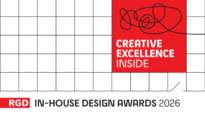Ask the Expert: Everything You Need to Know about Spec Work
Written by Jennifer Taback RGD, Design de Plume Inc.
In this edition, Jennifer Taback RGD, Principal at Design de Plume Inc., discusses with Amy Eaton RGD the disadvantages of speculative work, how to recognize and report it.
For those unfamiliar with the term spec work, what is it and why is it a problem?
Spec work is doing work for free with the promise that you might win something (a job, a contest or a cash prize). It’s a problem because it is asking tons of people to fight for a job that they are likely not going to receive any compensation for. It takes jobs away from designers, it abuses the excitement and trust customers have for their brands and it means many people waste precious time working for nothing.
What about contests? With the potential for prizes and exposure is this still considered specwork?
This is still the same idea. Typically a company hopes they can get a free, great idea with offering $500 to the best work. It wastes so many people’s time and often the company doesn’t end up using the idea because the general public doesn’t have the training that a professional designer does. One major concern is checking for problems that might get the organization in legal trouble such as plagiarized work.
If I see something that I suspect is spec work, what should I do?
The RGD has resources such as Free, Fee or Flee that can help you decide if it is spec work or not. If it is spec work, let the company/organization know that spec work is unacceptable with a few points found here.
The RGD can also send a letter requesting that the company amend their request. Send an email toexecdir@rgd.ca with details of the situation and the RGD will investigate.
As a business owner, are you ever asked to do work on spec?
Yes, it doesn’t happen as much any more, but from time to time people ask us to present free ideas and we let them know why that is not in anyone’s best interest.
What are some of the benefits for individuals and businesses who decline spec work?
Respect for your time and value as a designer. You will always encounter people who want everything for free (or for very little) and no matter what they promise in return (many MORE jobs in the future!) they will never come through.
You can’t feed yourself on promotion.
Declining spec work leaves you with more time to pursue clients and work that respect your training, time and value.
When hiring designers, do you think it is appropriate to conduct skills testing? Would that be considered spec work?
Skills testing is a valuable tool that employers can use to ensure they are hiring the right person for the job. However, skills tests can cross over into spec work. The RGD has developed the Skill Testing Guidelines to help determine what is acceptable and what is not.
What other ethical best practices are important for designers to consider?
For me, another big issue is the importance of respecting and understanding, that different cultures have different approaches to design and imagery. We talk a great deal about cultural appropriation and I think it is important for a designer to understand that they don’t know everything and knowthat humility and learning will really garner you respect with your clients.
One last fun question, what is your favourite place to find inspiration?
It’s been hard to go out and find inspiration in the wild, so I’ve been tuning a bit more into Instagram. I especially admire the really young artists who are doing fun stuff with no expectation of perfection. I enjoy how I can see so many people pursuing their passions at once.
Click here for the RGD's policy on spec work
Click here to download RGD's Ethical Best Practices for Design Competitions/Contests.

Jennifer Taback RGD
Design de Plume Inc.
Jennifer Taback is a member of Shawanaga First Nation and Co-CEO at Design de Plume. She sees herself as a visual translator, helping to bridge connections and use emerging technology to facilitate dialogue, increase understanding, and make some cool stuff along the way. Jennifer currently serves the role of listener, advisor, and strategist on projects that venture into new and unknown territories, while acknowledging the experiences and stories of the past.
Related Articles


Stephanie Strawbridge RGD, John Furneaux RGD, Eric Forest RGD, Raymond Cheah RGD, Ian Chalmers RGD


Diana Varma RGD












